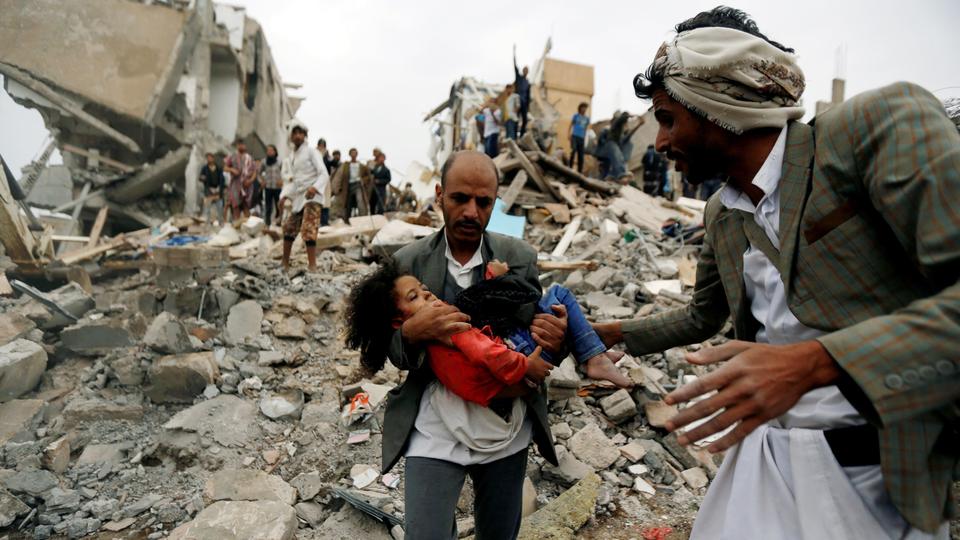Alwaght- At least 87 Yemeni civilians were killed between January 2021 and February 2022 by Saudi-led coalition's airstrikes using weapons supplied by the UK and US, according to a new Oxfam analysis.
The charity blamed the UK government of ignoring an identifiable “pattern of harm” caused by the indiscriminate bombing – and argues it amounts to legal grounds for Britain to end elements of its lucrative arms trade with Riyadh.
The Saudi kingdom and its allies, most notably the United Arab Emirates, have been waging a war against Yemen since March 2015, trying, in vain, to reinstall the exiled Saudi-friendly regime of Abd Rabbuh Mansur Hadi.
The military campaign, which has been enjoying unstinting arms, logistical, and political support from the United States, has killed hundreds of thousands of people and turned the entire Yemen into the scene of the world’s worst humanitarian crisis.
Martin Butcher, a policy adviser at Oxfam, said that there had been 431 airstrikes in the period monitored, roughly one a day, and that the “intensity of these attacks would not have been possible without a ready supply of arms.”
The sheer number of attacks, the 87 civilians killed and 136 wounded amounted to, Butcher added, “a pattern of violence against civilians” which all parties to the conflict, including arms suppliers, had failed to prevent.
A further 13 airstrikes carried out by British or American-made jets had taken place on hospitals and clinics, the Oxfam research added, with farms and homes routinely hit. Civilians were forced to leave their homes or places of shelter after a total of 293 raids from the air.
The Royal Saudi air force, the principal member of the military coalition fighting Yemeni nation, uses Typhoon and Tornado aircraft sold and maintained by Britain and F-15s from the US.
Some of the bombs used, such as the Paveway IV, are made in the UK – and the Campaign Against Arms Trade (CAAT) estimates that the total value of UK arms sales to Saudi since it began its intervention in the Yemen war in 2015 to be £23bn.
At the end of this month, the high court will hear a fresh appeal from CAAT against the UK’s decision to resume the sale of arms to Saudi Arabia that could be used in Yemen in 2020. It argues the UK is acting unlawfully by ignoring potential war crimes.
Then trade secretary Liz Truss had ordered the restart – halted because CAAT won an earlier case at the court of appeal – after a review concluded there had been only “isolated incidents” of airstrikes that breached humanitarian law.
Shortly after becoming president, Joe Biden vowed in February 2021 the US would halt the sale of offensive weapons to Saudi Arabia because of dire humanitarian situation in Yemen, but has since permitted the sale of over $4bn of defensive systems.
The UK, also, has not taken any measures to restrict sales unless forced to by the courts – although British ministers and officials say that the UK takes its export responsibilities seriously.
Ministers have to personally authorize the export of arms to Riyadh that could be used in Yemen, with the international trade secretary taking advice from the foreign secretary before making a final decision.
Officials maintain a “tracker” – a dossier of more than 500 incidents documenting every airstrike where there is deemed to be a risk of civilian casualties or damage to civilian infrastructure – to help ministers decide whether humanitarian law is being breached on a sustained basis.



























